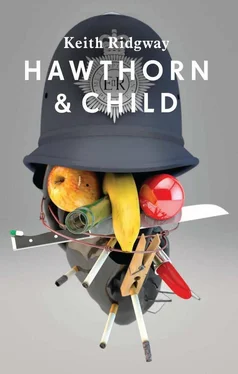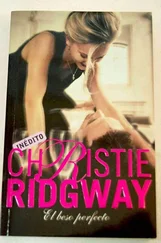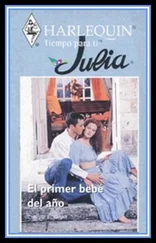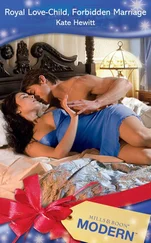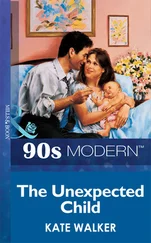— Which way?
— I’m not entirely certain. I couldn’t swear on it, but I have the impression now, I’m not sure why, that it turned to the right into Plume Road.
— North.
— Is it? Yes, you’re right. North.
— How would you describe it?
— The car?
— The car, yes.
— Just a shape really. The back of a car. You know. The idea of a car. I think there were brake lights. But you know I’m not even sure of that. But some kind of light or lights. Tail lights or a registration plate light or something. Some kind of shape around that.
— You couldn’t see a registration?
— No no. Nothing like that. Nothing so clear. I’m guessing. I don’t really know. It was the suggestion of a car, you know. The idea of a car.
Hawthorn looked at Child again. But he just looked back.
— Were the lights high or low?
Jetters looked confused.
— Were they at the standard saloon car height, or were they raised, like on a four-wheel drive for example? Or low down like a sports car?
— Oh I see. I don’t know. I don’t even know if there were lights. Standard, I suppose. It didn’t register. Not noticeably high or low.
— Square lights? Round? Oval?
He shrugged.
— As I say. I am even doubtful as to lights. Shapes of lights is beyond me. Sorry.
— That’s OK. This is very helpful.
— Could you hear it? asked Child.
He paused.
— Yes. I think so. Yes, I could, of course. It accelerated off from the junction. It was loud. I heard the engine roar. Well, not roar perhaps. But I certainly heard the engine. It accelerated away. It sounded … well, louder, I suppose, than I’d … louder than you’d expect. I think. Maybe it was just because there was no other traffic around.
— Can you describe the sound? Smooth? Irregular? High pitched?
— It was a rumble, I think. Like a … I don’t know. A low rumble. I can’t quite recall.
They let him think about it for a while.
— Like?
— Oh I don’t know. I really can’t remember.
— Were there other cars? To the left of you for example, as you came out on to Hampley Road?
— There were parked cars.
— I mean moving cars.
— I didn’t look to the left. I don’t think. I don’t recall looking to the left. I suppose I must have, when I turned the corner, instinctively, to check. But I don’t remember. And I don’t remember seeing any other cars. Not then.
— Where there other cars after that?
There were other cars after that. Some of them had made Alan Jetters nervous. None had stopped. One was a very pale gold.
— Though I suppose it could have been silver, reflecting my amber hazard lights.
— When did you put them on?
— When I stopped. When I pulled in. I actually don’t remember doing it, but they were on all the time, I was aware of the flashing.
Another was dark, and had a radio playing loudly. Then there had been a van which he had mistaken at first for an ambulance. But it had not stopped either.
— What colour was the van?
— Off-white. Grey. Maybe just a dirty white.
Then there was a people carrier with dark windows.
That was it.
— OK, said Hawthorn. He looked at Child.
— The jumper, said Child. You were wearing the jumper?
— Yes. I usually drive with my jumper on and hang my suit jacket in the back. It’s more comfortable.
— What colour is it?
— The jumper? It’s taupe.
Child nodded. Hawthorn had to look down at his notebook. He wrote tawp , and threw an important looking circle around it.
— Did you drive yourself here from the scene?
— Yes. With a police officer. She came with me.
— Your car is parked out the back?
— Yes.
— What colour is it?
Jetters looked between the two of them suspiciously.
— It’s … blue.
— What kind of blue?
— Marine.
Child nodded, grinning. Hawthorn wrote it down.
Hawthorn called Frank Lenton.
No vintage cars could be seen on the CCTV footage they’d so far got their hands on from around Hampley Road. They were starting to examine film from earlier and later and further away. Nothing that could pass for vintage. Nothing older than an early 1990s Toyota.
Hawthorn gave Frank the possible car turning north on to Plume Road, and the rumbling engine. And he gave him the other cars and the off-white van.
Daniel Field was twenty-four, Frank told him. He lived in a house on Nestor Lane, a couple of streets away from Hampley Road, which he shared with a book editor and a post-graduate student at UCL. His parents were divorced. His father lived in Chicago, his mother in Cambridgeshire. Daniel worked in the IT department of a small French investment bank with an office near Liverpool Street. He had been due in early that morning — at 6 a.m. — for a pre-trading software update, something that happened irregularly every couple of months or so. He was gay and single. He had one younger sister who was a student in Reading. His sister and his mother were on their way to London. He had no criminal record. He had no arrest record. He did not appear on any intelligence watch list or database. He was a civilian.
Hawthorn called the hospital. Daniel Field was still in surgery, but Hawthorn got hold of one of the nurses. Daniel would be fine. He had been hit once, in the right abdomen, the bullet ricocheting slightly off the top of his hip bone, and coming to rest close to his bladder. But it was a small bullet and had not left much damage in its wake. Surgery would take a while because they wanted it to be as unobtrusive as possible. He was generally healthy. He would make a full recovery.
Child had disappeared. Hawthorn dozed in the stuffy duty lounge of Highbury Station. He stretched out on an odd-smelling sofa with his hands on his stomach and his head turned towards the muted television. He was thinking about his father. There was a chat show on the screen, and everyone was smiling. He was not thinking anything specific about his father. He simply had him in mind. His face and voice and the grip of his hands and his smell and his eyes. His voice.
He could call him, he thought. And ask him about old cars. He remembered toys. Old toys. He remembered the carpet in the hallway, and the kitchen floor. He remembered lying down flat, with old toy cars in his hands.
He fell asleep.
He dreamed he was asleep in front of the television.
— We’re getting some progress from a couple of sources in Tottenham. Pointing to a random pair of fun-gunners associated with a dealership, gone a little haywire.
Hawthorn frowned. Rivers sounded upbeat. The case was elsewhere. The case was always elsewhere. Nevertheless, he frowned, and noticed that Child picked up on it and mirrored it, and took off his glasses and rubbed his eyes.
— In a vintage car?
— Yeah. A blue Hyundai Coupe. About two years old. Does he wear glasses?
— No. At least …
— Find out if he wears contacts. Maybe he’s partial to a pre-work spliff. Did you ask the hospital what they’d pumped into him by the time he started talking to you?
— Nothing hallucinogenic. I don’t know.
— I had an assault victim once who insisted that it was the Archbishop of Canterbury in full regalia who’d jumped her on a back street in Lambeth. You’ll have to wait for him to come round. Assuming he comes round. Shock. Confusion. Drifting in and out of consciousness. Maybe he didn’t see it at all and the brain has filled in for him. Who knows? Don’t worry about it.
— I think he was pretty sure.
— Go and speak to the housemates. They’ve given statements. But I want to know if any of them have any links to this Tottenham crew. It’s unlikely but you never know. Do they smoke a bit? A little coke for a party sometimes? Who do they get it from? Any trouble with them? Go gently, please. My money is on random.
Читать дальше
